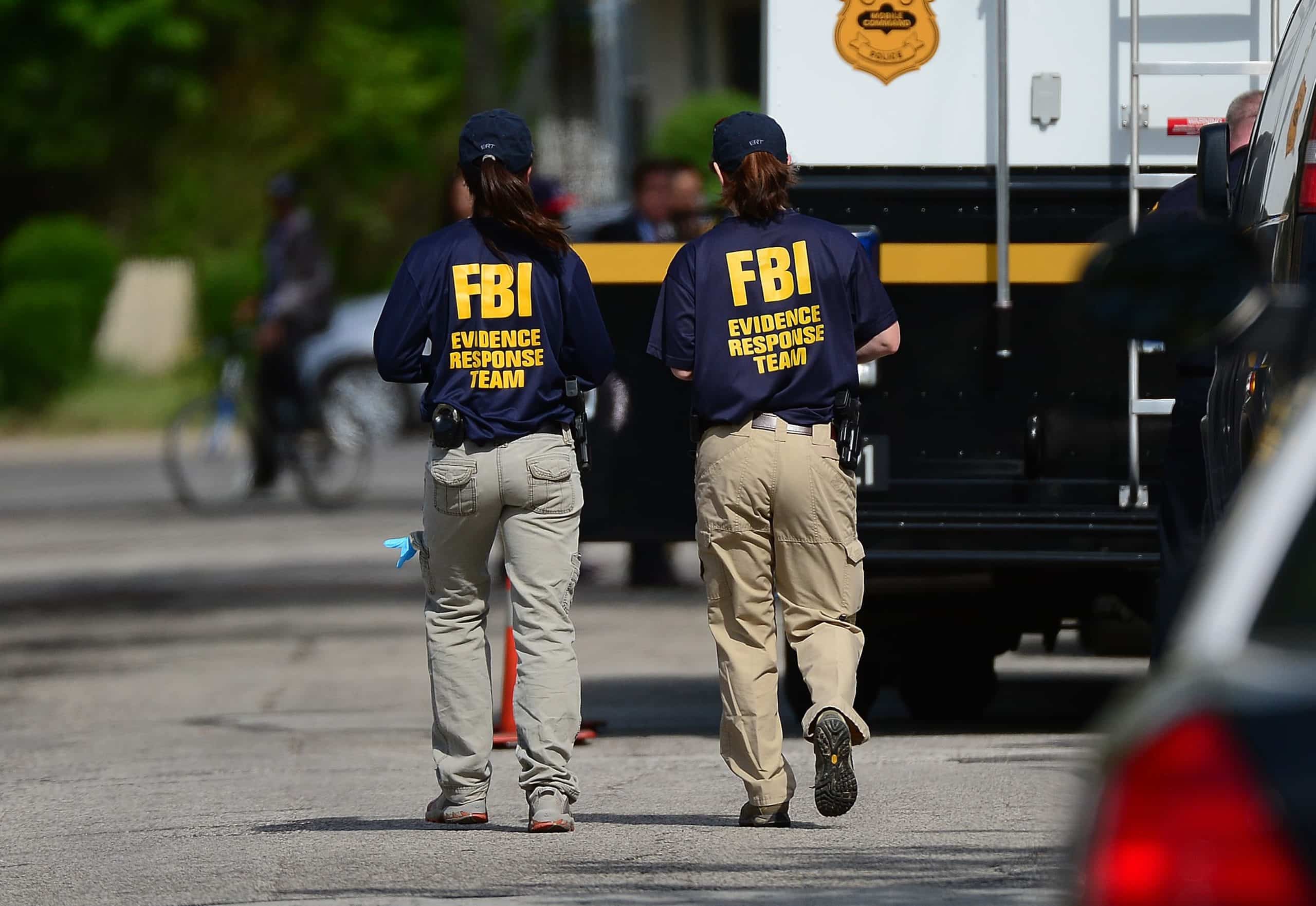
The FBI misused its most powerful surveillance tool to spy on US persons over 278,000 times, says a recently unsealed court document.
Law enforcement agencies, including the FBI, are strictly not allowed to surveil the electronic communications of US persons without a warrant, probable cause or explicit permission from the sender. Electronic communications are clearly covered by the 4th Amendment’s protections against unlawful searches and seizures.
However, there is a glaring exception to this rule, enabled by the legal statute Section 702 of the Foreign Intelligence Surveillance Act (FISA). It allows the government to collect communications from foreigners abroad on domestic soil, even when the communications include Americans.
Empowered by Section 702, the National Security Agency (NSA) and FBI can force tech and telecom companies like Google and AT&T to hand over the communications of any foreign user. The impetus for the project was the 9/11 attacks, though it wasn’t launched until 2008.
Why Is This Coming Up Now?
The recently unsealed court document has sparked yet another scandal with the FBI at its center. It also comes at a time when data security and privacy concerns are at their zenith.
Even though Section 702 is intended for spying on foreign targets, only about 230,000 foreigners were surveilled without a warrant under the program in 2021, compared to 278,000 searches on US persons in 2021 and 2022.
Politicians Claim Misuses Were Politically Motivated
The specific nature of many of the searches that were made in the Section 702 database were also worrying to many. Some lawmakers, like Jim Jordan (R-OH), the Chairman of the House Judiciary Committee, believed that the misuses of Section 702 were political in nature.
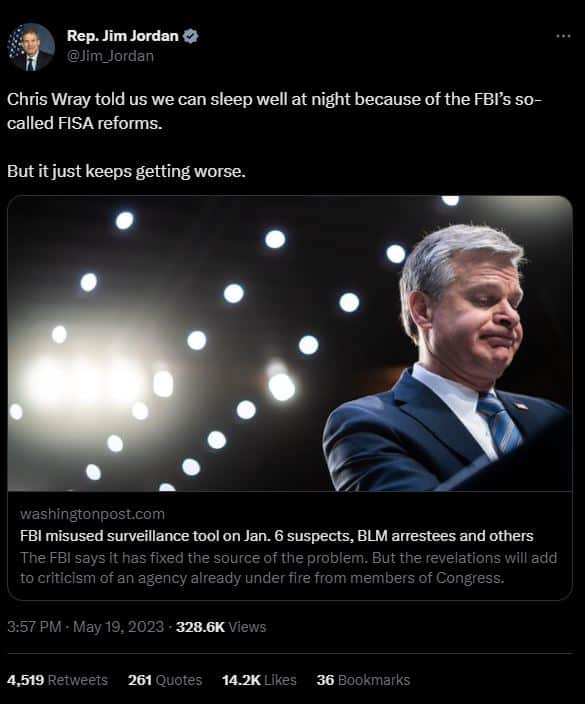
Jordan likely believes this because an FBI employee ran 23,132 separate queries in the database in batches, targeting presumed Americans related to the January 6th riot.
The FBI stated that it was searching for proof of possible foreign influence. However, the Department of Justice concluded that there was no clear factual reason to believe it would uncover anything like that. The judge in charge noted that the analyst’s searches did not show any signs of foreign influence.
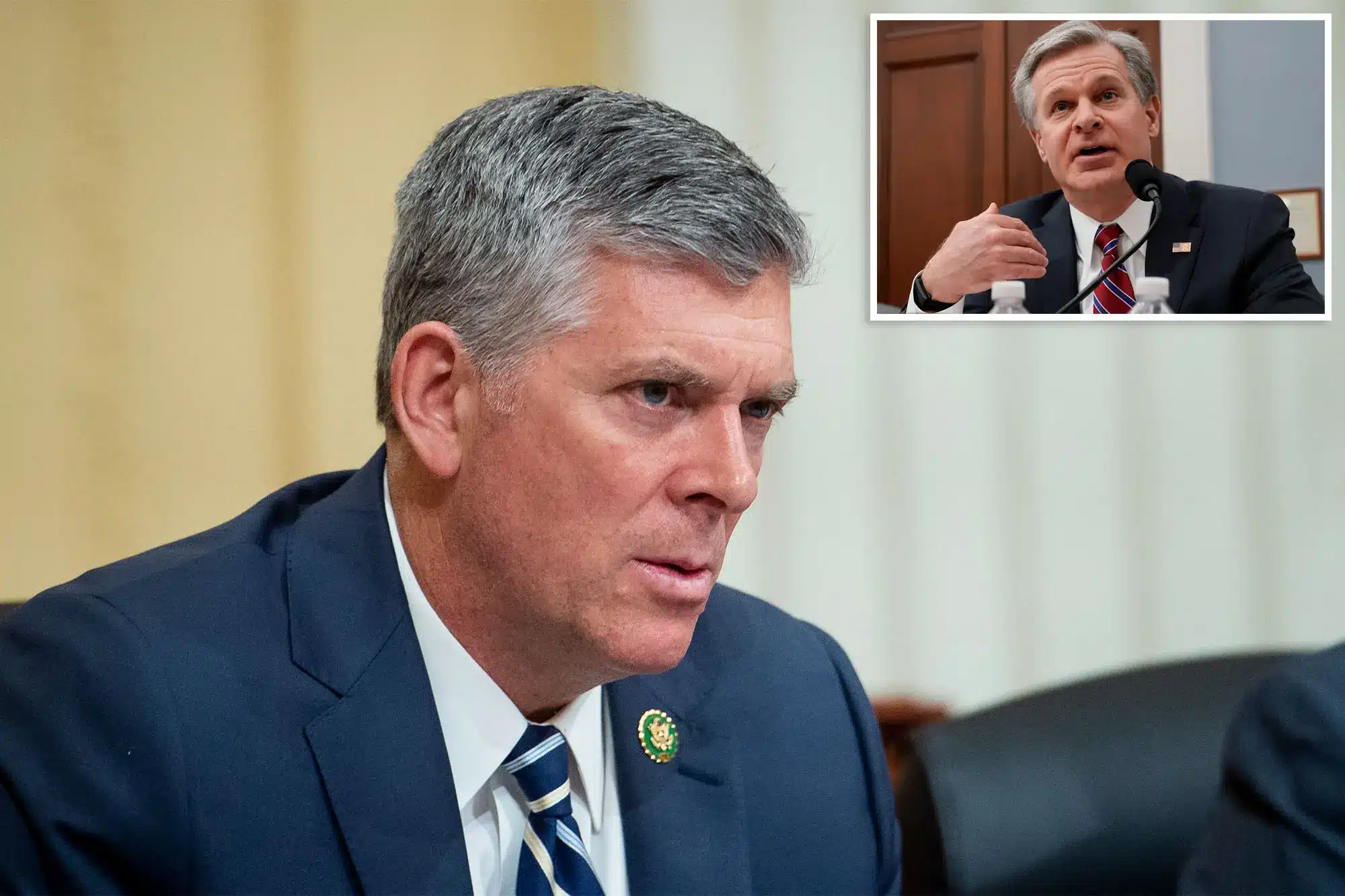
Another massive batch of searches were targeted at 19,000 campaign donors of Rep. Darin LaHood (R-Ill). The analyst running the searches claimed that LaHood’s campaign was “a target of foreign influence.”
The Department of Justice, however, found that a measly 8 identifiers used in the query “had sufficient ties to foreign influence activities” to comply with the required standards.
The searches weren’t only targeted at right-wing Americans. The FBI also searched for the data and communications of 133 people arrested in the civil unrest and protests that followed the death of George Floyd.
Even the data and communications of individuals close to homicide cases, including victims, next-of-kin, witnesses, and suspects, were searched.
The FBI argued that they had reason to believe these searches would find evidence of foreign intelligence or crime simply because they were related to homicides. The court disagreed, saying that it had no reasonable basis to believe this.
Despite the staggering scale of the misuse of Section 702, it seems that the FBI has seen no consequences whatsoever, except for public outcries and ridicule.
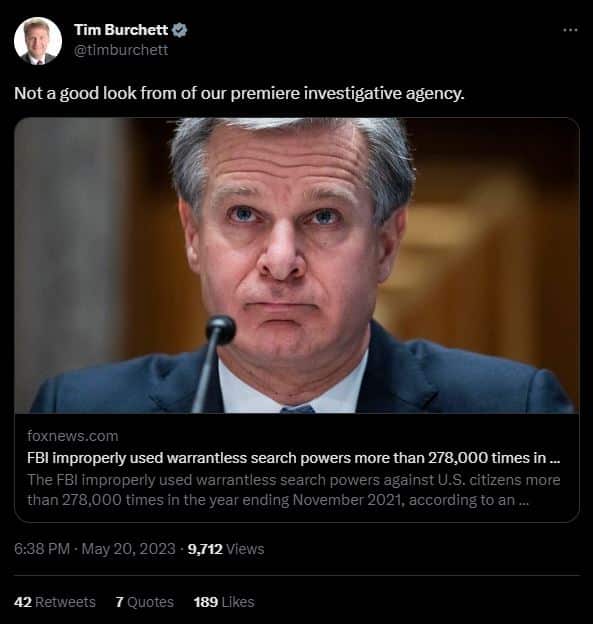
The FBI claimed that it was simply a misunderstanding and that its agents didn’t know the rules or were confused about the required standards. One official said that “There was confusion historically about what the query standard was.”
The Bureau also claims that it has already fixed this noncompliance issue and has put new rules into place to help prevent it. Some politicians and pundits are pushing for Section 702 reforms, expecting that the FBI isn’t capable of policing itself.
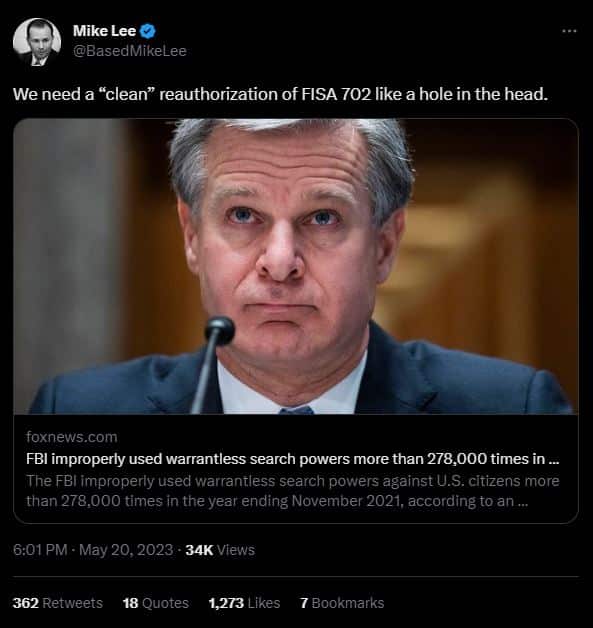
Others, including Mike Lee (R-UT), a Republican Senator, are begging for it to be struck down. Section 702 must be renewed by December 31st, 2023 and after this scandal (and other recent scandals involving the FBI) it may be difficult to uphold.
Related Articles:
EU’s Top Data Privacy Regulator Blasted By EU MPs For Inaction Against TikTok
Best AI Crypto Tokens & Projects to Invest in 2023
Qraft Aims to Protect Investors from Market Drawdowns by Using AI
What's the Best Crypto to Buy Now?
- B2C Listed the Top Rated Cryptocurrencies for 2023
- Get Early Access to Presales & Private Sales
- KYC Verified & Audited, Public Teams
- Most Voted for Tokens on CoinSniper
- Upcoming Listings on Exchanges, NFT Drops